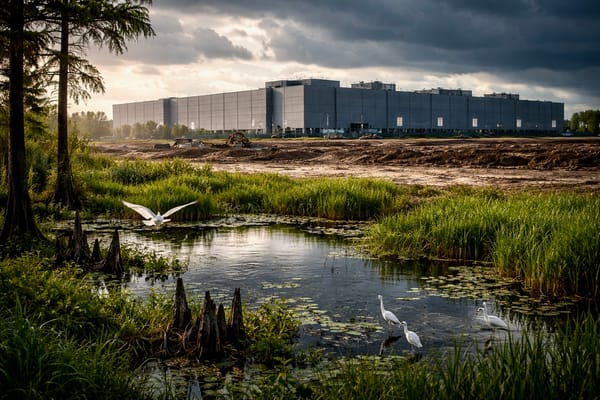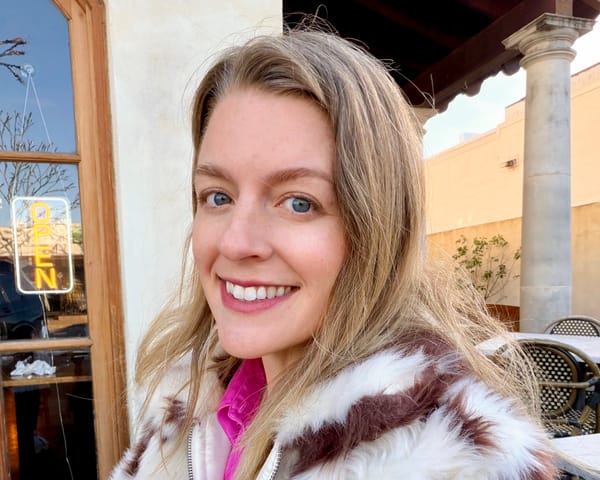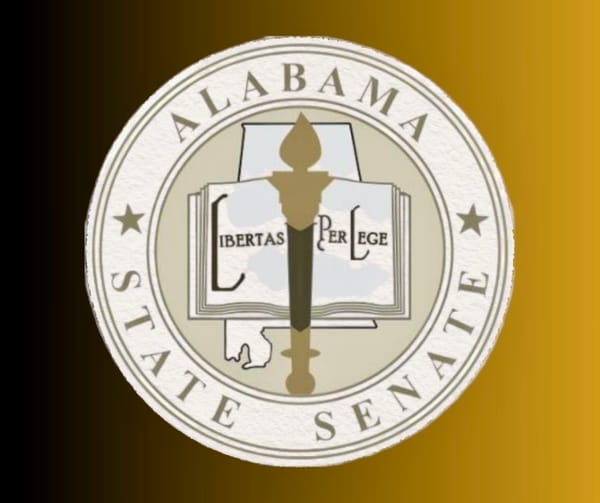Good People, Bad Systems: Why Huntsville Must Choose Transparency Over Appearances
“Public records, informed consent, and workable opt-outs aren’t acts of charity; they’re the baseline of trust in a free society”—Alicia Boothe Haggermaker

Guest Opinion by Alicia Boothe Haggermaker
Note: The perspectives in this article and any others written by me are mine alone and do not represent the official position of any group or organization I have worked alongside. While I’ve collaborated with others on these issues, what follows is my personal opinion and reflection.
“Some of you would’ve told David to pray for Goliath — and not to cause a scene.”
That line has been making the rounds online, and it struck me deeply. We live in a time when polite silence is often praised more than uncomfortable truth. But prayer without action, faith without courage, and concern without accountability leave the giants of our day standing tall and unchallenged.
Huntsville Utilities, like many organizations, is filled with good people doing their best inside of a system they did not create. None of the current board members were in place when the smart meter rollout began, yet they now shoulder the consequences of decisions made years ago. Employees like Ron Rizzardi have shown patience and willingness to meet with the community and answer questions, even when the conversations are hard. That matters — and it should be acknowledged. We are genuinely appreciative that HU staff have taken the time to sit down with us, listen, and respond. That kind of engagement is not something every city sees, and it deserves recognition.
But appreciation for individuals cannot blind us to the systemic failures that got us here. Inflated cost analyses, shifting narratives, and the dismissal of independent science even after it has been placed on the record reveal a pattern that is bigger than any one person. These aren’t flaws in character — they’re symptoms of a system that prioritizes liability management over transparency, and control over collaboration.
If we truly value transparency, then accountability cannot stop at lip service. Public records, informed consent, and workable opt-outs aren’t acts of charity; they’re the baseline of trust in a free society. To say this out loud isn’t “biting the hand that feeds us” — it’s ensuring that the hand serves the people, not the other way around.
Beyond Huntsville: The Larger Pattern
Huntsville Utilities is not an island. Its policies, rates, and technological rollouts are shaped by the Tennessee Valley Authority — a federal power giant whose reach extends across seven states. When Huntsville Utilities says their “hands are tied,” it is often because TVA is pulling the strings.
That’s why the conversation cannot stop at one board or one city. TVA, the Department of Energy, and federal contractors are pushing utilities into a future shaped by artificial intelligence and remote-control systems — often without robust public debate. PBS recently reported that AI infrastructure, from data centers to predictive monitoring, is driving up electricity demand across the country. Families are left with higher bills to subsidize projects that have little to do with ordinary households (PBS NewsHour).
Water resources are also being strained. AI data centers and cooling systems consume extraordinary amounts of water, threatening agriculture and daily use. In a region like the Tennessee Valley, where rivers and reservoirs sustain both livelihoods and lives, residents deserve to know how resources are being allocated (PBS NewsHour).
So when we push for transparency and opt-outs at the local level, we’re not nitpicking. We’re addressing the first ripple in a much larger wave — a national pattern where utilities are nudged into adopting technologies that prioritize corporate contracts and federal directives while everyday people absorb the risks.
When Innovation Meets Oversight
This same pattern shows up closer to home. Huntsville’s leadership is considering a proposal to equip garbage trucks with AI-powered “City Detect” cameras to scan for code violations. On paper, it sounds efficient: catch problems early, save staff time. In practice, it means that when a family member is sick and your grass grows too high, the AI won’t see compassion — it will see “noncompliance.” And that translates into a bill.
City Council postponed its initial vote on the measure, but it is now scheduled for September 11. That date gives transparency advocates a critical window before the decision is made (Axios).
This is the problem with turning human communities into machine-managed checklists. Real life is full of context — illness, grief, financial strain, or simply the choice to landscape differently. An algorithm cannot capture that nuance. Instead, it risks punishing residents who are already vulnerable, layering stress on top of struggle.
Building Solutions That Put People First
If the real concern is tall grass or missed maintenance, we don’t need an AI camera to send a bill. We need a community that responds with support before punishment. Imagine if instead of citations, a family in crisis received a phone call or a volunteer team offering help.
Other cities have piloted programs where neighbors assist with yard care for seniors, families in crisis, or those with disabilities. Huntsville could do the same, connecting civic groups, churches, and youth organizations to real needs. Even Huntsville Utilities could partner by using customer service infrastructure to notify households of available help before escalating to enforcement.
The same philosophy should apply to energy and water use. Instead of hidden infrastructure deals and vague reassurances, why not invest in public dashboards, educational forums, and independent studies that show residents exactly where their money and resources are going?
Enforcement without empathy breeds resentment. Collaboration builds trust. A wise city doesn’t just push technology forward — it ensures its people aren’t left behind or punished in the process.
Closing the Gap Between Appearance and Reality
In the meeting, Huntsville Utilities staff pointed to 211 as a resource for families who might struggle with self-reporting or compliance. On the surface, that sounds like a compassionate safety net. But in practice, 211 often falls short. Families are bounced from referral to referral, placed on waiting lists, or told no service is available. For someone juggling illness, poverty, or elder care, that’s not real help — it’s a dead end.
This isn’t about blaming the individual who mentioned it. It’s about recognizing that pointing to underfunded programs is not the same as providing true solutions. If Huntsville wants to be a leader, it must create systems that offer real support — proactive, localized, and accountable — instead of leaning on paper-thin fallbacks.
This is why transparency and accountability matter. Not because individuals are bad, but because systems are too often designed to protect themselves. Good people get trapped in bad structures, doing the best they can with policies that were never built for true collaboration.
If Huntsville wants to lead as the Rocket City of the future, then innovation must not come at the expense of empathy. AI tools, energy systems, and city programs must serve people first, and they must be measured not by how efficient they look on paper, but by how well they meet the needs of real lives.Progress without accountability is just control with a new name. The path forward is clear: demand transparency, insist on compassion, and never accept appearances in place of reality.
Full Source Links:
PBS NewsHour – How AI infrastructure is driving a sharp rise in electricity bills https://www.pbs.org/newshour/show/how-ai-infrastructure-is-driving-a-sharp-rise-in-electricity-bills
PBS NewsHour – AI and the energy required to power it fuel new climate concerns https://www.pbs.org/newshour/show/ai-and-the-energy-required-to-power-it-fuel-new-climate-concerns
Axios Huntsville – Huntsville eyes AI, truck cameras to fight blight https://www.axios.com/local/huntsville/2025/07/24/huntsville-ai-garbage-truck-cameras-code-enforcement-city-detect
Axios Huntsville – AI camera proposal raises native lawn worries https://www.axios.com/local/huntsville/2025/08/14/huntsville-native-plants-ai-lawns-garbage-truck-cameras
GovTech – Huntsville, Ala., Delays Vote on AI Cameras on Garbage Trucks https://www.govtech.com/civic/huntsville-ala-delays-vote-on-ai-cameras-on-garbage-trucks
Alicia Boothe Haggermaker is a lifelong resident of Huntsville, Alabama, and a dedicated advocate for health freedom. For more than a decade, she has worked to educate the public and policymakers on issues of medical choice and public transparency. In January 2020, she organized a delegation of physicians and health freedom advocates to Montgomery, contributing to the initial draft of legislation that became SB267.
Opinions do not reflect the views and opinions of ALPolitics.com. ALPolitics.com makes no claims nor assumes any responsibility for the information and opinions expressed above.




